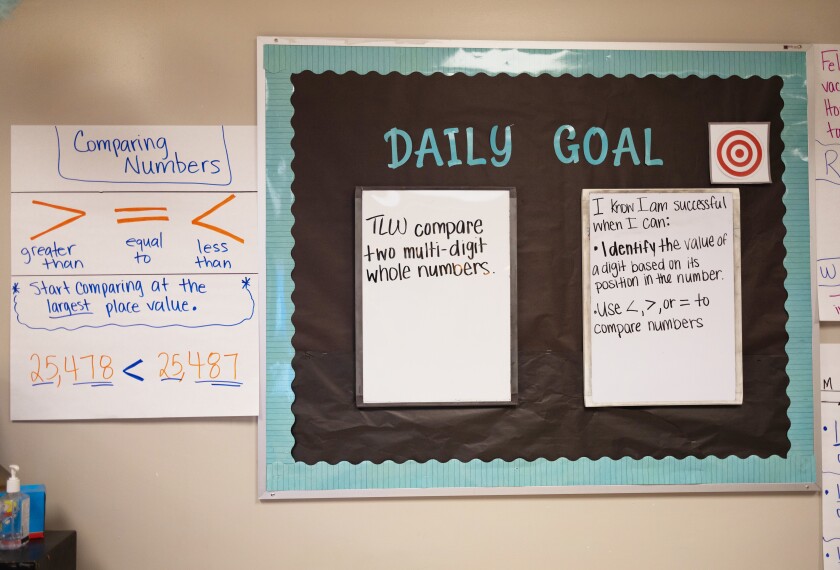The latest practice guide from the federal Institute of Education Sciences offers educators research-backed advice on tackling one of the most critical gaps in American students’ mathematical knowledge: how to work with fractions.
Compared with their Asian peers, U.S. students fall short in their understanding of fractions, the report says. On the 2004 National Assessment of Educational Progress mathematics test, for example, half of 8th graders could not place three fractions in order from least to greatest.
To address the problem, the institute recruited top scholars to recommend best practices for teaching fractions.
They called for: building on students’ informal understandings of sharing and proportionality; using number lines to help students understand how fractions expand the number system beyond whole numbers; teaching students why strategies such as the “invert and multiply rule” make sense; focusing on the especially difficult concepts of ratio, rate, and proportions; and emphasizing fractions in teacher education and professional development.
The guide also rates the evidence for each recommendation, gives practical examples, and suggests ways to overcome potential roadblocks to implementation.




